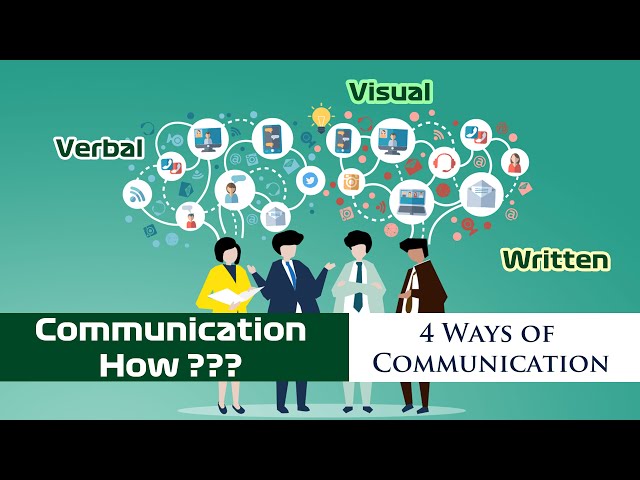Introduction.
Effective communication is one of the most essential skills for career success. Whether in a team meeting, an email to a client, or a conversation with a manager, clear and effective communication can improve relationships, increase productivity, and help you convey your ideas convincingly. This article explores the different facets of communication skills that are key to building strong professional relationships and advancing in your career.

1. Understand the Power of Active Listening
- Explanation: Listening actively is as important as speaking clearly. It involves giving your full attention, processing information, and responding thoughtfully. This builds trust, as people feel heard and understood.
- Tips:
- Maintain eye contact and nod to show attentiveness.
- Paraphrase or summarize what the other person says to confirm understanding.
- Avoid interrupting; allow them to finish before responding.
2. Be Clear and Concise
- Explanation: In professional settings, time is valuable. Clarity and conciseness make your communication more effective and ensure your message is understood. Use straightforward language, focus on the main points, and avoid jargon unless your audience is familiar with it.
- Tips:
- Structure your message in a logical order.
- Use short sentences and eliminate unnecessary words.
- Avoid overloading emails or conversations with excessive details.
3. Adapt to Your Audience
- Explanation: Every audience is different, so tailor your communication style to fit the needs of your listeners. Whether speaking to a senior executive or a colleague, consider their level of knowledge, preferences, and expectations.
- Tips:
- Use formal language with senior management and less formal with peers.
- Adjust the level of detail based on the listener's familiarity with the topic.
- Ask questions to gauge understanding and adjust if needed.

4. Pay Attention to Nonverbal Cues
- Explanation: Body language, facial expressions, and tone of voice contribute significantly to communication. Nonverbal cues can reinforce your message or contradict it, so be mindful of what your body is saying.
- Tips:
- Maintain an open posture, like uncrossed arms and relaxed shoulders.
- Match your tone of voice to the message; avoid sounding tense when delivering positive news.
- Use appropriate facial expressions to show interest or empathy.
5. Be Empathetic and Open-Minded
- Explanation: Empathy helps you connect with others on a deeper level. Being open-minded shows respect for diverse perspectives, which fosters a more inclusive work environment. This is particularly useful when handling conflicts or working in diverse teams.
- Tips:
- Acknowledge others' feelings and viewpoints.
- Avoid being judgmental and practice active listening to understand their position.
- Use phrases like “I understand” or “That makes sense” to show empathy.
6. Build Confidence in Public Speaking
- Explanation: Public speaking is a vital skill in many professional roles. Confidence in speaking publicly enhances your authority, helps you convey messages more persuasively, and can elevate your influence.
- Tips:
- Practice your speech or presentation several times to build confidence.
- Focus on the message rather than on yourself to reduce anxiety.
- Use pauses effectively to allow your audience to absorb key points.

7. Practice Effective Written Communication
- Explanation: In business, much of your communication is through email, reports, and other written formats. Strong writing skills improve clarity, ensure professionalism, and save time by reducing back-and-forth clarifications.
- Tips:
- Start with a clear subject line for emails and a structured format for reports.
- Proofread your work for grammar and spelling errors.
- Be polite and use proper greetings and closings.
8. Manage Difficult Conversations with Tact
- Explanation: Challenging conversations are inevitable in professional settings. Handling these with tact and diplomacy prevents misunderstandings, resolves issues amicably, and strengthens relationships.
- Tips:
- Start by acknowledging the issue and expressing willingness to find a solution.
- Keep your tone calm and avoid sounding accusatory.
- Focus on facts rather than emotions to maintain a productive discussion.
9. Give and Receive Constructive Feedback
- Explanation: Constructive feedback is essential for growth, but giving it effectively requires sensitivity and clarity. Likewise, receiving feedback with an open mind helps improve your skills and build trust.
- Tips:
- When giving feedback, focus on specific actions rather than personal traits.
- Use positive language and suggest solutions.
- When receiving feedback, listen without interrupting, thank the person, and reflect on how to apply it

10. Develop Emotional Intelligence (EQ) in Communication
- Explanation: Emotional intelligence allows you to manage your emotions and interpret others' emotions accurately. This skill enhances interpersonal interactions, making you more effective in conflict resolution, teamwork, and leadership.
- Tips:
- Practice self-awareness and recognize your emotional triggers.
- Stay calm under pressure and respond thoughtfully.
- Recognize others’ emotional cues and adapt your approach accordingly.
Conclusion.
Mastering communication is a continuous journey that goes beyond just speaking well. By practicing active listening, adapting to your audience, and paying attention to nonverbal cues, you can make your interactions more impactful and build stronger professional relationships. As you refine these skills over time, you’ll find yourself better equipped to express your ideas, manage challenges, and foster a collaborative work environment. With effective communication, you’re not just sharing information—you’re building a foundation for long-term career success and personal fulfillment.


You must be logged in to post a comment.